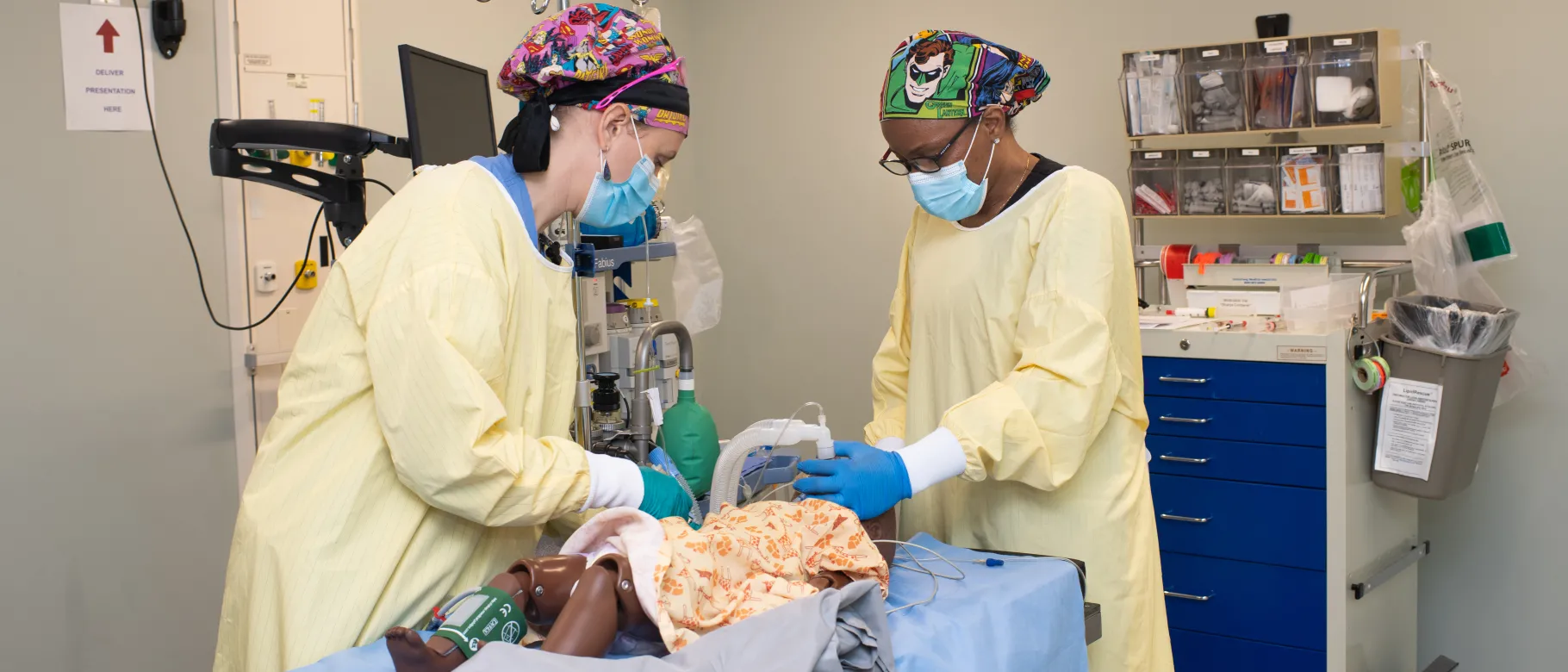With new reaccreditation, UNE's Nurse Anesthesia program to offer new doctoral degree

Starting next fall, the University of New England will offer a Doctor of Nursing Practice (D.N.P.) in Nurse Anesthesia degree program to align with current industry standards and prepare students for higher standards of patient care.
The D.N.P. in Nurse Anesthesia will replace UNE’s existing Master of Science Nurse Anesthesia (M.S.N.A.) program, which prepares students to become Certified Registered Nurse Anesthetists (CRNAs). The Council on Accreditation of Nurse Anesthesia Educational Programs (COA) now requires that all students matriculating into a nurse anesthesia educational program on Jan. 1, 2022, or thereafter be enrolled in a program approved by the COA to award a practice doctoral degree.
The switch to a doctoral program, said Cheryl Nimmo, D.N.P., MSHSA, CRNA, associate clinical professor and director of Nurse Anesthesia at UNE, affords students a broader perspective of the overall health care system.
“New doctoral courses encompass global topics such as finance, ethics, leadership, and epidemiology,” Nimmo said. “These courses give CRNAs more knowledge to be able to assume a higher role in the health care system and to effect positive change for patients. CRNAs are better able to take care of their patients knowing what their patients are dealing with and how the health care system is functioning.”
The 36-month program will include a potent mix of academic course work, in-person clinical experiences, and clinical simulation at UNE’s ultramodern Interprofessional Simulation and Innovation Center. A 19-month hospital-based phase is designed to give students extensive clinical training in a wide range of anesthetics, while a strong emphasis on research affords students opportunities to submit scholarly work for possible publication.
Additionally, a wide breadth of clinical experiences, state-of-the-art facilities, and a supportive learning environment grounded in interprofessional instruction have led to a recent 10-year reaccreditation from the COA — the maximum interval awarded for accreditation.
Nimmo stated that the program’s overall high first-time pass rate on the National Certification Examination, of 90% or higher, and the program’s low attrition rate fully support the excellence of the program.
“A 10-year recertification from the COA is an honor and a true indicator of the excellence of UNE’s Nurse Anesthesia program,” Nimmo remarked. “It is a testament to both our exceptional students and our excellent faculty who take individual interest in each of our students, such that students really feel like they belong here and are prepared for success.”